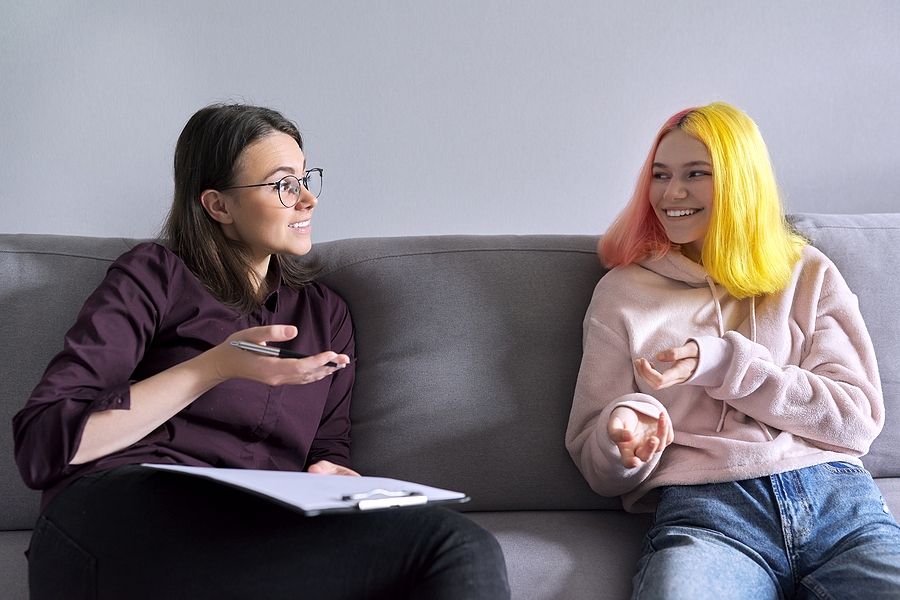April 2022 is the inaugural “Counselling and Psychotherapy Month” in Canada.
Since I plan on writing about relationships for the next few weeks, I thought I’d share a couple of thoughts on how psychotherapy can help develop your relationship skills.
My Experience with Therapy
When I started my master’s program in counselling psychology at Lewis and Clark College in Portland, Oregon, one of the requirements was that every student in the program receives at least 10-hours of individual therapy.
So, at the age of 26, I made an appointment with one of the counsellors at the school’s counselling centre. It was a positive experience.
Since then, I’ve been to several different therapists at different points in my life, and every therapist I’ve worked with has provided me with some unique insights and perspectives that I still draw upon all these years later.
Therapy Provides Relationship Practice
When reflecting on what I’ve taken away from the different therapists I’ve worked with and what I try to provide to clients who come to me for therapy, I can summarize it in two words: relationship practice.
Relationships require effort, whether with a relative, friend, or significant other. You need to put effort into connecting with those you care about. And through this process of connection, you need to use a variety of skills. You need to listen, communicate, be present, thoughtful, and engaged.
These are also the same qualities you develop in psychotherapy.
Applying This To Your Life
Here are a couple of ways in which counselling and psychotherapy can help you practice relationship skills.
1. Communication. When I visit a therapist, one of the things I become more conscious of is how I’m communicating. Am I speaking too quickly? Am I getting to the core of what is troubling me? What am I feeling right now? Unfortunately, these are the kinds of questions most of us avoid thinking about on our own.
But when you go to a therapy session, you’re speaking with a person who is genuinely interested in what you have to say. In talk therapy, you think more deeply about what you are talking about and how you are talking about it.
2. Building insight and self-awareness. To form a healthy relationship with someone, you need to take an honest look at your habits and patterns of relating. For example, do you tend to keep things to yourself? If so, what are they, and why? How do you think past experiences have influenced the person you’ve become? What habits do you need to change? What emotions do you need to manage better? Counselling and psychotherapy encourage you to take an honest look at yourself. By doing so, you’ll improve your ability to empathize with others – a crucial skill for building relationships.
Summary
On average, about one million Canadians access mental health services per year. Of course, many more would like to access services, but cost, not knowing how to find a therapist, or being too busy seems to be the main reasons for not accessing counselling and psychotherapy.
When you find the right therapist, though, the experience can be well worth your time, effort, and cost. Not only will it allow you to practice your relationship skills, but you’ll get to know yourself better in the process.
Richard
P.S. If you’re interested or curious about talk therapy, check out the profiles of our professional therapists and see if there’s someone who’s profile resonates with you.
If you enjoyed this post, then pick up my new book, The Promise Wheel: Psychology For Growth and a Balanced Life. I provide dozens of strategies and insights on how to improve your health, relationships, and career so that you can achieve personal balance, feel less stressed, and have fun again.

